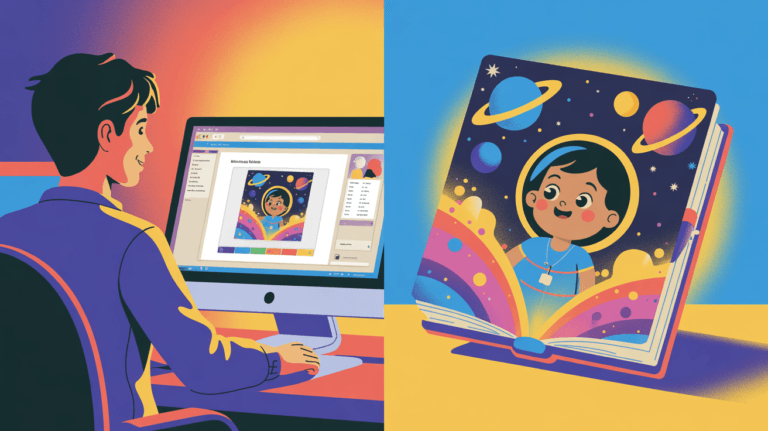Best Non-Fiction Books to Read Before You Die

Did you know “The Diary of a Young Girl” by Anne Frank has a 4.19 average rating from over 3.8 million ratings? It’s a book that has deeply touched many readers. If you’re looking to broaden your knowledge with some key reading, you’re in for a great experience.
Non-fiction books do more than just inform. They deeply change how we see the world. Books like “Night” by Elie Wiesel, with a 4.38 rating, and Jon Krakauer’s “Into Thin Air” (4.25 rating), show the impact of real stories. These books show our strength and desire to learn.
Walter Isaacson’s biographies of Steve Jobs and Benjamin Franklin are truly inspiring. Yuval Noah Harari’s “Sapiens” and “Homo Deus” offer deep insights. These books are perfect for anyone wanting to grow their understanding of life.
The Power of Memoir: Personal Stories that Resonate
Memoirs have a special way of connecting us through personal stories. They give us a peek into another’s life, showing us universal truths. In 2020, 24% of adult non-fiction book sales in the U.S. were memoirs, says the Association of American Publishers. This genre’s strength is in its ability to share impactful narratives that stay with us long after we finish reading.
What Makes a Memoir Captivating?
What pulls readers into memoirs is their honesty. Themes and raw truths make these personal stories hard to forget. For example, Elizabeth Gilbert’s “Eat, Pray, Love” and Roxane Gay’s “Hunger” share the authors’ struggles and victories. These stories are open and honest, creating a strong bond between the writer and the reader.
Must-Read Memoirs for 2023
In 2023, memoirs offer a wide range of compelling stories. Jacqueline Woodson’s works are still highly regarded, and new voices like Javier Zamora bring fresh insights. These stories cover a variety of themes, enriching our understanding of human experiences and revelations.
The Impact of Personal Narratives
Memoirs have a profound impact on both the reader and society. They challenge norms and encourage empathy, as seen in the works of Anne Frank and Maya Angelou. Memoirs open up conversations, helping us grasp the intricate nature of human life.
Exploring History: Books that Shaped Our Understanding
History books bring the past to life, helping us understand today. They offer insights into different times and places. This lets us see how the past affects us now.
Essential Historical Non-Fiction Titles
Start with “The New Jim Crow: Mass Incarceration in the Age of Colorblindness” by Michelle Alexander. It’s 338 pages and came out in 2010. It talks about today’s social justice issues.
“Guns, Germs, and Steel: The Fates of Human Societies” by Jared Diamond is also great. It’s a 528-page book from 1997. It shows how human societies have evolved.
How History Books Influence Modern Perspectives
“The Invention of Yesterday: A 50,000-Year History of Human Culture, Conflict, and Connection” by Tamim Ansary is another must-read. It’s 448 pages and from 2019. It helps us understand cultural differences and conflicts.
“The Blood Telegram: Nixon, Kissinger, and a Forgotten Genocide” by Gary J. Bass is also important. It’s 537 pages and from 2013. It uncovers forgotten genocides and their impact on today’s world.
Engaging with Different Eras through Literature
“The Swerve: How the World Became Modern” by Stephen Greenblatt is a great choice. It’s 377 pages and from 2012. It explores the Renaissance’s cultural impact.
“Born in Blackness: Africa, Africans, and the Making of the Modern World, 1471 to the Second World War” by Howard W. French is also worth reading. It’s 528 pages and from 2021. It shows how Africa has shaped our world.
Check out these books and more to learn about history. For more reviews and recommendations, click here.
True Crime: The Dark Side of Humanity
True crime stories give us a glimpse into the darkest parts of human nature. They explore why people commit crimes and how society reacts. The rise in popularity of true crime shows our deep interest in these stories.

Notable True Crime Gems
Truman Capote’s In Cold Blood is a must-read in true crime. It tells the story of a brutal murder in Kansas and the minds of the killers. Michelle McNamara’s I’ll Be Gone in the Dark is another standout, detailing her search for the Golden State Killer.
These books are loved for their deep analysis and detailed accounts of famous crimes.
The Psychology Behind True Crime Stories
True crime stories fascinate us because they explore the twisted minds of criminals. Fans of true crime love the psychological thrillers that reveal the motives and methods behind crimes. By looking into the minds of offenders, we learn more about ourselves and why some turn to crime.
Why We’re Drawn to True Crime Narratives
Several reasons explain why true crime stories are so popular. They offer a raw look at humanity’s darker side. The detailed stories also let us dive into mysteries and forensic science. Plus, the mix of fear and safety makes the stories even more compelling.
| Average Rating | Performance | Story |
|---|---|---|
| 4 out of 5 stars | 4 out of 5 stars | 5 out of 5 stars |
Science for Everyone: Understanding the Universe
If you’re curious about the cosmos, there are many science books for you. They make learning fun and easy to understand. Books like “A Short History of Nearly Everything” by Bill Bryson turn complex ideas into stories you’ll love.
Groundbreaking Science Books for Laypeople
Whether you’re new to science or already know a lot, there’s a book for you. Here are some great options:
| Title | Price | Pages |
|---|---|---|
| The Beginning and The End of Everything: From the Big Bang to the End of the Universe | £16.99 | 288 |
| The Cosmic Mystery Tour: A High-Speed Journey Through Space and Time | £16.99 | 224 |
| Your Place in the Universe: Understanding Our Big, Messy Universe | £18.99 | 288 |
| A Fortunate Universe: Life in a Finely Tuned Cosmos | £12.99 | 388 |
Popular Science Authors to Know
Learn from top scientists through their books. Authors like Brian Greene and Stephen Hawking explain complex ideas simply. Their books make understanding the universe easy for everyone.
For example, “The Basic Code of the Universe” by Massimo Citro explores quantum physics and how we see the world. It shows the value of questioning and learning more.
The Role of Science in Everyday Life
Science books are important in our daily lives. They make science easy to understand and use. They cover topics like AI, string theory, and how math relates to reality.
Knowing science helps us face the future. Check out The Basic Code of the Universe for more on these ideas and how they change how we see the world.
The Importance of Self-Help Literature in Today’s World
Self-help books are a big part of today’s literature. They show the need for personal growth and motivation. Over time, they’ve given us practical advice for changing our lives. Their popularity shows how effective and relevant they are.
Key Self-Help Titles that Inspire Change
Books like Stephen R. Covey’s The 7 Habits of Highly Effective People and Dale Carnegie’s How to Win Friends and Influence People have changed lives. They offer advice and wisdom that people all over the world find helpful. In 2018, self-help book sales in Britain rose by 20%, showing their impact.
How Self-Help Books Have Evolved
Since Samuel Smiles’ Self-Help in the late 19th century, self-help books have changed a lot. Now, they cover everything from dealing with anxiety to improving leadership skills. The self-help market in the US is expected to be worth 13.2 billion dollars by 2022, showing its wide appeal.
Tips for Choosing the Right Self-Help Book
Finding the right self-help book is key to your growth. Choose books that match your goals and challenges. Look for ones with good reviews and from experts. Reading books that speak to you can help you make real changes. A study found that 95% of people learned something new from self-help books, and 75% saw actual changes in their lives.
| Author | Title | Impact |
|---|---|---|
| Dale Carnegie | How to Win Friends and Influence People | Sold approximately 30 million copies worldwide, translated globally, highly influential in personal and professional relationships. |
| Napoleon Hill | Think and Grow Rich | Notable bestseller during the Great Depression, focused on financial success and mindset. |
| Stephen R. Covey | The 7 Habits of Highly Effective People | Provides a framework for personal and professional effectiveness; widely adopted in leadership contexts. |
Environmental Non-Fiction: Books for the Planet
Reading environmental books gives you important knowledge about our planet. It shows us the beauty and fragility of nature. It also encourages us to take action to protect the environment.
Influential Environmental Writers
Rachel Carson’s “Silent Spring” changed the world. It led to the ban of DDT and started modern environmental movements. Her book has an average rating of 4.04 from 50,633 ratings.
Barry Lopez also inspires us with his essays. They focus on how humans interact with nature.
Compelling Reads on Climate Change
Books about climate change offer deep insights. For example, “The Sixth Extinction” by Elizabeth Kolbert shows the danger of species extinction. It has an average rating of 4.15 from 74,174 ratings.
“Field Notes From A Catastrophe” talks about the real effects of climate change. It uses Hurricane Katrina as an example.
Erica Gies‘ book on slow water is fascinating. It’s about sustainable water management. Ben Rawlence‘s work on tree species shows how climate change affects forests.
The Role of Non-Fiction in Advocacy
Ecological non-fiction does more than just inform. It pushes for change. For example, Vandana Shiva’s “Water Wars” talks about the dangers of privatizing water. James Hansen’s “Storms Of My Grandchildren” warns about global warming.
Books like “The End Of Nature” introduced the greenhouse effect in 1989. Today, these books highlight environmental challenges and solutions. Reading these environmental books can be enlightening and transformative. It shows us the urgent need for climate action.
Biographies that Inspire and Educate
Biographies give us a peek into the lives of famous people. They share stories of overcoming challenges and finding success. These stories teach us valuable lessons, making biographies a key source of knowledge and inspiration.
Iconic Figures in Biography
Nelson Mandela’s “Long Walk to Freedom” is a standout biography. It tells the story of Mandela’s life, from prisoner to president. It’s a powerful tale of courage and leadership.
“I Am Malala” by Malala Yousafzai is another inspiring book. It has over 593,981 ratings. Malala’s story shows the power of fighting for what you believe in.
What We Learn from Great Lives
These biographies teach us many lessons. “Roots: The Saga of an American Family” by Alex Haley explores identity and heritage. It has a 4.44 average rating from 161,456 ratings.
“Jimi Hendrix: Black Legacy” by Corey A. Washington is another example. It has a 4.64 average rating. It shows how Hendrix’s life and career influenced others.
The Art of Biography Writing
Writing a great biography is all about mixing facts with a good story. “Lincoln” by David Herbert Donald is a perfect example. It has a 4.19 average rating from 47,268 ratings.
“Coco Chanel: The Legend and the Life” by Justine Picardie is another example. It has a 3.75 average rating. It tells Chanel’s story in a way that grabs your attention.
To learn more about inspiring biographies, check out a list of best inspiring biographies. They cover the lives of influential people in different fields.
Travelogues: Exploring the World Through Words
Travel stories are like magic doors to the world. They let you see places far away without leaving home. These tales spark your imagination and make you want to explore.
They also help you grow by showing you new things. You learn from different cultures and experiences.
Essential Travel Books to Wanderlust
“Notes from a Small Island” by Bill Bryson is a must-read. It has a great rating of 3.91 out of 115,251. Bryson’s journey across the UK is funny and full of interesting observations.
“Winter in Majorca” by George Sand is another great choice. It has a rating of 3.13 out of 700. This book shows the beauty and calm of Majorca in a unique way.
The Influence of Travel on Personal Growth
Reading travel books can change you. “The Exploration of the Colorado River and Its Canyons” by John Wesley Powell is a great example. It has a rating of 3.92 out of 1,959.
These stories teach us about different cultures and places. They often make us want to travel ourselves.
Must-Read Contemporary Travel Writers
Today’s travel writers are amazing. Mark Obmascik’s “The Big Year” is a standout. It has a rating of 3.99 out of 5,436. It’s about nature, adventure, and competition.
Will Ferguson’s “Beauty Tips from Moose Jaw” is also a must-read. It’s funny and insightful about Canada. It has a rating of 3.75 out of 1,358.
Philosophy and Ethics: Understanding Human Thought
Diving into philosophy books and ethical non-fiction can really help us understand human thoughts and feelings. It makes us think deeply about the rules that guide our actions and moral debates.

Fundamental Works in Philosophy
Reading classic and modern philosophy texts gives us key insights into ethics and human nature. “The Nicomachean Ethics” by Aristotle helps us understand virtue ethics and what it means to flourish. Immanuel Kant’s “Groundwork of the Metaphysics of Morals” focuses on reason and ethics, seeing humans as ends in themselves.
Friedrich Nietzsche’s “On the Genealogy of Morals” challenges our moral values, showing the depth of philosophical thought through the ages.
How Non-Fiction Influences Ethical Perspectives
Intellectual literature shapes our views on ethics. Simon Blackburn’s “Being Good: A Short Introduction to Ethics” tackles moral judgments and dilemmas today. Peter Singer’s “Practical Ethics” questions our social norms and tackles current issues.
These works offer both theory and practical advice for dealing with today’s ethical challenges.
The Relevance of Philosophy in Daily Life
Philosophy books and ethical non-fiction are more than just academic texts. “How to Live a Good Life (According to 7 of the World’s Wisest Philosophies)” applies timeless ethics to our lives. It turns abstract ideas into practical wisdom, helping us make better choices and think critically.
Reading philosophy helps us grow personally and contribute to society. It’s a powerful tool for everyday life.
For top digital products, check out these platforms. They offer reliable, supportive, and valuable resources. Whether it’s tools, software, or training, they help grow your online business and enrich your mind.
| Book Title | Author | Published Year | Page Count |
|---|---|---|---|
| Ethics: The Fundamentals | Julia Driver | 2006 | 192 |
| Being Good: A Short Introduction to Ethics | Simon Blackburn | 2003 | 172 |
| Ethics: History, Theory, and Contemporary Issues | Steven Cahn & Peter Markie | 1998 | 976 |
| What We Owe to Each Other | T. M. Scanlon | 1998 | – |
Cultural Criticism and Social Commentary
Cultural criticism and social commentary deeply shape our views of the world. With the end of The Village Voice in 2018 and big cuts at Buzzfeed and The A.V. Club, journalism faces big challenges. Yet, the need for deep analysis of society’s issues keeps growing.
Influential Critics and Their Works
Names like Noam Chomsky, Michel Foucault, Edward Said, and bell hooks have greatly impacted cultural criticism. Their writings break down politics and personal identity, offering deep insights into society. Books like “The Culture of Narcissism” by Christopher Lasch are key, exploring today’s values and behaviors.
Understanding Society through Non-Fiction
Cultural criticism gives us a close look at society’s behaviors and structures. Works like “Animal Farm” by George Orwell and “Invisible Man” by Ralph Ellison tackle big issues like inequality and race. These books not only mirror today’s problems but also push readers to think deeply about their world.
Non-Fiction’s Role in Cultural Awareness
Analytical non-fiction is key to understanding culture. Tools like satire and allegory help convey complex ideas simply. Social media has made it easier for diverse voices to be heard, spreading cultural awareness globally. This sparks important conversations, leading to positive change in society.
Disclosure: This post contains affiliate links. If you make a purchase through these links, I may earn a small commission at no extra cost to you.






